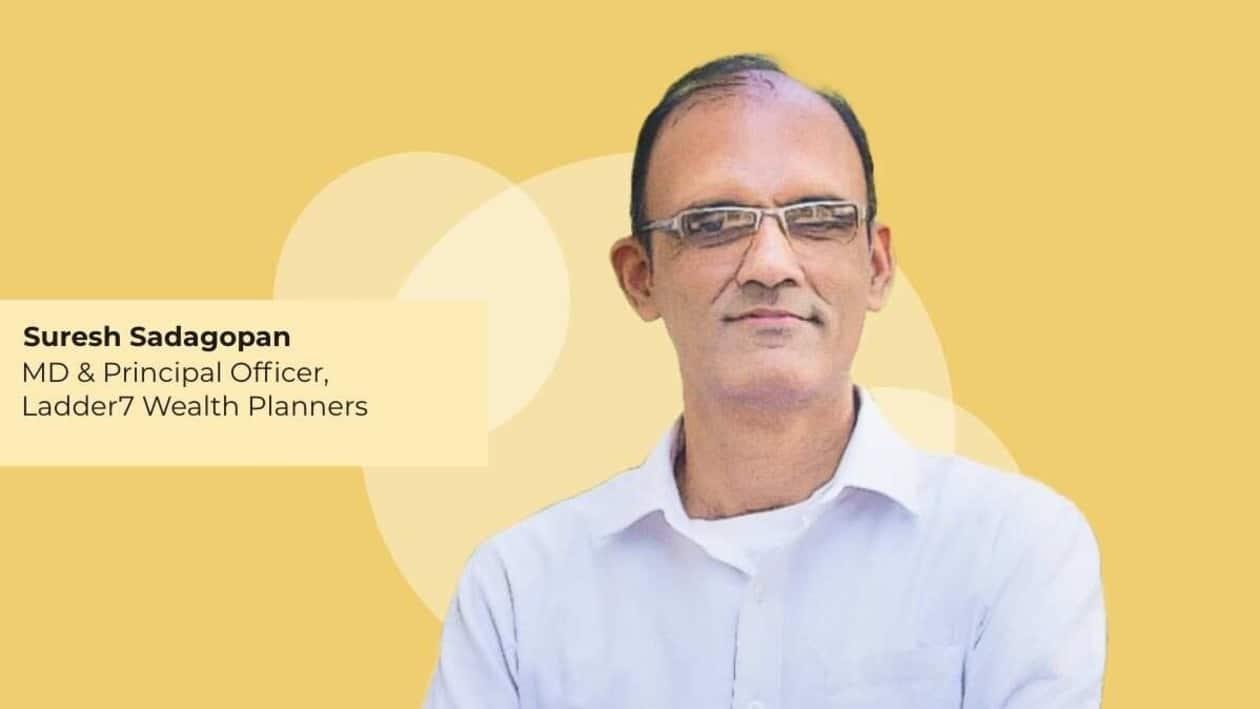Investors have a false sense of knowledge about finances. According to Suresh Sadagopan, MD & Principal Officer, Ladder7 Wealth Planners, understanding products and choosing those that offer high returns is hardly enough.
In an interview with MintGenie, Sadagopan said how investors must have a plan and strategy for financial nirvana, which is completely missing in most cases.
Edited Excerpts:
Q. You advise people about their finances. What is the first step you recommend to them regarding their finances?
The first step for most people would be to check whether they have enough liquidity/ contingency, have provided for upcoming goals and have taken the appropriate insurance (life & medical) for the necessary security cover for the family.
Immediately following that would be checking their personal situation, their goals, risk profile etc. and coming up with an appropriate asset allocation based on which a suitable portfolio is suggested. Along with this, streamlining the portfolio and making it lean and manageable is also very important.
Q. People are expecting more repo rate hikes by the RBI in the near future. How do you advise them to balance their loans and investments?
More RBI repo rate hikes can happen. That is a factor of both internal and external environments. But, the consensus is that we are somewhere near the top. Rate hikes are something that we have no control over. Since we are probably near the end of the rate hike cycle, the loan EMI rates can go up somewhat higher.
As far as investments go, one should continue investing for the long term as dictated by the suitable asset allocation for that individual/family. Choosing assets based on market cycles or what is giving good returns or is expected to give good returns is not something we would recommend as financial advisors.
Q. Many personal financial analysts are of the view that the technology sector will bounce back in 2023, thanks to the government’s renewed focus on the Artificial Intelligence (AI) sector. What is your take on the same?
The salience and performance of a sector are based on many factors. IT sector performed well during Covid-19, which came as a surprise. AI is a sector that has linkages with many industries and has the potential to do well in the future.
The technology sector is now a core sector in the world. But, its good performance is also dependent on other sectors doing well as the orders and requirements for services come from them. If there is a recession anywhere in the world, the IT sector will be affected. Since we export IT services, a recession in the major export markets is expected to impact the Indian IT sector as well. Hence, it is far from clear whether the IT sector will bounce back in 2023.
Q. What is the most common misconception that you think refrains people from managing their finances?
People find finances boring. They do not want to spend time learning the basics of personal finance. Hence, people are content investing as per what they hear and see other people do or have read or watched.
Also, investors think in terms of products when it comes to investing. There is no real thought given to their personal situation, their specific requirements and needs and the kind of portfolio they should have that will be truly suitable for them. Rather, they just invest in products they feel will give good returns or in investments that are trending and seem to be doing well at that point (for example, gold at this point). There is no overarching plan and strategy with which they are investing. That leads to a bloated, chaotic portfolio that is not aligned with their requirement in the short term or to meet long-term goals.
Investors have a false sense of knowledge about finances. They tend to think that if they watch business channels, and read up on finances they can pretty much do it themselves. Understanding products and choosing those that offer high returns is hardly enough. We need a plan and strategy for financial nirvana, which is completely missing in most cases.
Q. The new Budget 2023 rules do not have room for tax deductions and exemptions. Do you still think investors must continue parking their money in ELSS funds?
If the investors are in the old regime, they will continue to get the Sec 80C benefits. If they choose the new regime, these deductions are not available.
Investments, even for tax-saving purposes, should always align with the overall investment goals of the person and their family. People should continue to invest in appropriate products now with an eye on tax-efficient investments and better tax treatment on accruals.
ELSS funds are equity funds. If one does not have to claim the Sec 80C deductions, ELSS may not be needed. One can invest in appropriate diversified equity funds as per one’s requirements. We cannot stop investments or invest less as deductions are not available. Investments must be made in order to meet one's financial goals, expenses, and create wealth, and this should continue regardless of whether tax breaks are available.
Q. The market continues to reel first under the Russia-Ukraine war and then under the Adani-Hindenburg saga. How long do you think would it take for investors to be resilient towards these external factors?
External factors are challenging to account for. The important thing for investors is to anticipate such adverse contingencies and provide adequately for them so that they are not affected when an adverse event happens that roils the markets.
That is why adequate liquidity & contingency provisions are suggested. One should ideally have expenses (including EMIs) for at least six months, as well as provisions for short-term goals. This way one can weather most storms.
